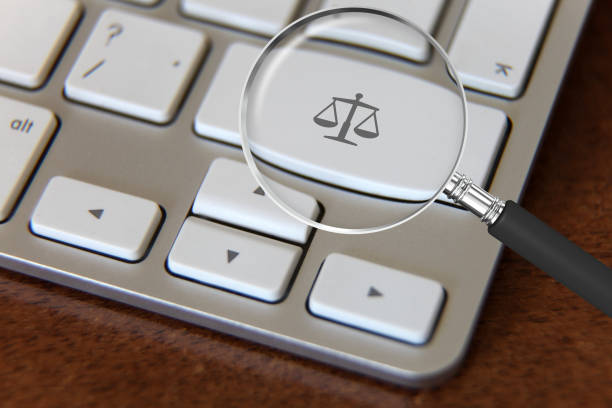Is Trolling Illegal in Wisconsin
Is Trolling Illegal in Wisconsin
In today’s digital world, the ancient science of Vedic astrology meets technology through tools like online marriage astrology calculators, offering clarity and cosmic predictions with just your date, time, and place of birth. But the real depth of prediction lies far beyond a calculator’s numerical result — it’s in the hands of a skilled astrologer who interprets your chart with intuition, scriptural wisdom, and cosmic observation. That’s where Nayku’s astrology services shine — providing precise, confidential, and personalized online marriage prediction sessions rooted in Vedic knowledge yet adapted for the modern digital seeker. This is not just about “when,” but why and how your marriage will unfold the way it does. Let’s uncover that cosmic mystery step by step.
Introduction
In the age of digital communication, the internet has become a space where ideas, jokes, opinions, and sometimes malicious behavior thrive. Among these behaviors, trolling—the act of deliberately posting provocative, offensive, or disruptive content online—has stirred considerable legal and ethical debates. While often brushed off as a minor annoyance, trolling can escalate to harassment, cyberbullying, or even threats.
But what does the law say about trolling, particularly in Wisconsin? Is it illegal? Are there legal consequences for online trolls? And how can victims protect themselves?
This comprehensive guide delves into the legality of trolling in Wisconsin, the relevant state and federal laws, real-life cases, and how platforms like Nayku Legal Services assist individuals facing such challenges.
What is Trolling?
Trolling involves intentionally instigating conflict or distress in online communities by posting inflammatory or off-topic messages. While some trolls do it for fun or to provoke reactions, others aim to cause genuine harm, often crossing the line into cyber harassment or defamation.
Types of trolling include:
- Harmless trolling: Sarcastic jokes or light teasing, often without malicious intent.
- Harmful trolling: Includes personal attacks, hate speech, threats, or sharing private data (doxxing).
In Wisconsin, the legal treatment of trolling depends heavily on the intent, content, and consequences of the troll’s actions.
Nayku Legal Services can help you understand the boundaries of online communication and identify when trolling crosses into unlawful behavior.

Trolling vs. Freedom of Speech
The First Amendment protects freedom of speech in the United States. However, this protection is not absolute. Wisconsin law, like federal law, recognizes limitations on free speech, especially when that speech involves:
- Threats
- Defamation
- Harassment
- Incitement to violence
- Obscenity
Trolling that falls within these categories may be prosecuted under existing laws. Hence, distinguishing between protected expression and criminal behavior is essential.
Nayku Legal experts often review cases to determine whether trolling is legally actionable or simply distasteful but protected speech.
Wisconsin Statutes Related to Trolling
Several Wisconsin state laws address behaviors that can be associated with online trolling.
1. Wisconsin Statute § 947.0125 – Unlawful Use of Computerized Communication Systems
This statute prohibits using electronic means to:
- Threaten injury or harm
- Harass, intimidate, or abuse
- Make obscene or lewd suggestions
- Repeatedly send unwanted messages
Penalty: Violating this statute can result in a Class B misdemeanor, or worse if the offender has prior convictions.
This law is often applied in cases where trolling leads to targeted online harassment.
Nayku Legal Services provides support to victims who receive threatening or harassing messages online by guiding them through the process of reporting and legal remedy.
2. Harassment Injunction (Wisconsin Statute § 813.125)
Victims of trolling can seek a civil harassment injunction. To qualify, the victim must prove:
- Repeated behavior intended to harass or intimidate
- The behavior serves no legitimate purpose
This can apply to repeated trolling comments, DMs, or posts meant to distress an individual.
Remedy: A court order requiring the troll to cease all contact.
If you're unsure how to proceed with a harassment claim, Nayku Legal offers one-on-one live consultation services for filing such injunctions in Wisconsin.
3. Defamation Laws (Wisconsin Statute § 895.05)
If trolling includes false statements that harm a person’s reputation, it may be considered defamation.
There are two types:
- Libel: Written falsehoods (e.g., social media posts)
- Slander: Spoken falsehoods (e.g., live streams)
To win a defamation case, the victim must show that:
- The troll made a false statement
- The statement was published or shared
- It caused reputational harm
- It wasn’t protected opinion or satire
Nayku Legal Services has helped many clients navigate defamation claims resulting from viral trolling episodes.

Cyberbullying Laws in Wisconsin
While not all trolling qualifies as cyberbullying, there's often overlap.
Wisconsin's Anti-Bullying Legislation
Though aimed at schools, these laws also cover cyberbullying that occurs off-campus if it affects students.
Under Wisconsin Statute § 118.46, schools are required to adopt policies that address bullying, including via:
- Text
- Social media
If a minor is trolling another minor online, school and legal actions may follow. Parents can seek help through Nayku Legal's advisors for school-related cyberbullying incidents.
When Does Trolling Become a Crime?
Trolling becomes a crime under Wisconsin law when it involves:
- Threats of physical harm (battery or death threats)
- Persistent harassment
- Obscenity sent to minors
- Posting private images or information without consent
- Stalking behavior
Trolling can also violate federal laws such as:
- The Communications Decency Act
- The Interstate Stalking and Harassment Act
- The Computer Fraud and Abuse Act
In such cases, federal charges may apply, and legal representation is essential.
Nayku Legal Services provides experienced attorneys who understand both state and federal cyber laws.

Real-Life Case Studies in Wisconsin
Case 1: Online Threats Lead to Arrest
In 2021, a Wisconsin man was charged with making threats via Facebook against a political figure. His actions, initially considered trolling, were deemed criminal threats.
Case 2: Harassment Injunction Granted for Repeated Tweets
A woman from Milwaukee was granted a harassment injunction against a former colleague who continuously trolled her with defamatory tweets.
These cases show that trolling isn’t just disruptive—it can result in real legal consequences.
Victims in these cases often sought help from legal professionals, such as those available through Nayku Legal Services, to take swift and informed action.
Reporting Trolling in Wisconsin
Steps to Take:
- Document everything – Save screenshots, links, and messages.
- Report the troll – Use platform tools (Twitter, Facebook, Instagram) to report abusive users.
- File a police report – Especially if there are threats or repeated harassment.
- Seek legal assistance – Consult a cyber law attorney or a platform like Nayku.
Nayku Legal’s online case intake system helps victims easily file complaints and request protection.
Protective Measures and Prevention
Even if you’re not a victim yet, it’s wise to protect your online presence.
- Use privacy settings wisely
- Limit personal information online
- Block and report trolls early
- Avoid engaging with trolls
If trolling escalates, Nayku Legal Services provides digital forensic support to trace IPs and identify anonymous harassers.

Role of Nayku Legal Services
Nayku Legal is an emerging online platform offering one-on-one live consultations with the top-notch verified and experienced legal consultants.
Services include:
- Free 30 minutes consultation for first-time clients
- Guidance on filing harassment injunctions
- Connecting users with attorneys licensed in Wisconsin
- Drafting cease-and-desist letters
- Filing criminal or civil complaints
Whether you're a victim of trolling, a school addressing student cyberbullying, or a company dealing with defamatory reviews, Nayku Legal’s expertise makes legal processes more accessible and affordable.
Trolling and Mental Health
The emotional toll of trolling can be significant:
- Anxiety
- Depression
- Fear
- Social withdrawal
If you're experiencing mental stress from trolling, consider counseling support. Nayku Legal can also connect clients with licensed therapists through its wellness partners.
Trolling in the Workplace
Trolling doesn’t just happen on social media. It can occur within:
- Email chains
- Company Slack channels
- Internal social platforms
If workplace trolling turns into harassment, employees can report it under Title VII or Wisconsin employment laws. Nayku Legal Services provides workplace harassment documentation templates and legal counseling.
Minors and Juvenile Laws
Trolling by minors can also have consequences.
Under Wisconsin law:
- Parents may be liable for the actions of their children
- Juvenile court may intervene
- Schools can take disciplinary actions
Nayku Legal Services educates both minors and parents on the responsibilities of digital behavior and helps them respond legally if issues arise.
Statute of Limitations
For most harassment or defamation claims in Wisconsin:
- Defamation: 2 years
- Harassment injunctions: Must be filed while behavior is ongoing
- Cybercrimes: Varies depending on charge
Don’t wait. Early action helps preserve evidence and strengthens your case. Nayku Legal offers quick consultations to help determine deadlines and strategy.

Summary: Is Trolling Illegal in Wisconsin?
| Trolling Type | Legal? | Applicable Law |
|---|---|---|
| Harmless joke | Usually legal | First Amendment protection |
| Repeated insults | Possibly illegal | § 947.0125 - Harassment via electronics |
| Threats of violence | Illegal | State & federal threat laws |
| Doxxing | Illegal | Privacy, harassment, and stalking statutes |
| Sexual messages to minors | Criminal offense | Child protection & obscenity laws |
| False public accusations | Possibly illegal (Defamation) | § 895.05 - Libel/Slander |
Final Thoughts
Trolling may start as a joke, but it can quickly evolve into serious legal territory. In Wisconsin, harassment, threats, and defamation online are taken seriously, and the law provides tools to fight back.
If you're a victim of trolling or falsely accused of being a troll, it’s important to seek professional guidance.
Nayku Legal Services bridges the gap between individuals and experienced legal professionals, making justice in the digital world more reachable than ever.
Related Articles

Find Best Online Lawyers in Bhopal Near Me
Find the best online lawyers in Bhopal near you for instant legal consultation, expert guidance, and...
Read More
Experienced Lawyers Online Legal Consultations In Bhopal
Connect with experienced lawyers in Bhopal for online legal consultations. Get reliable advice and s...
Read More
Get Professional Advice From Best Lawyers in Bhopal
Find top-rated lawyers in Bhopal offering expert legal advice. Get solutions for family, property, b...
Read More
